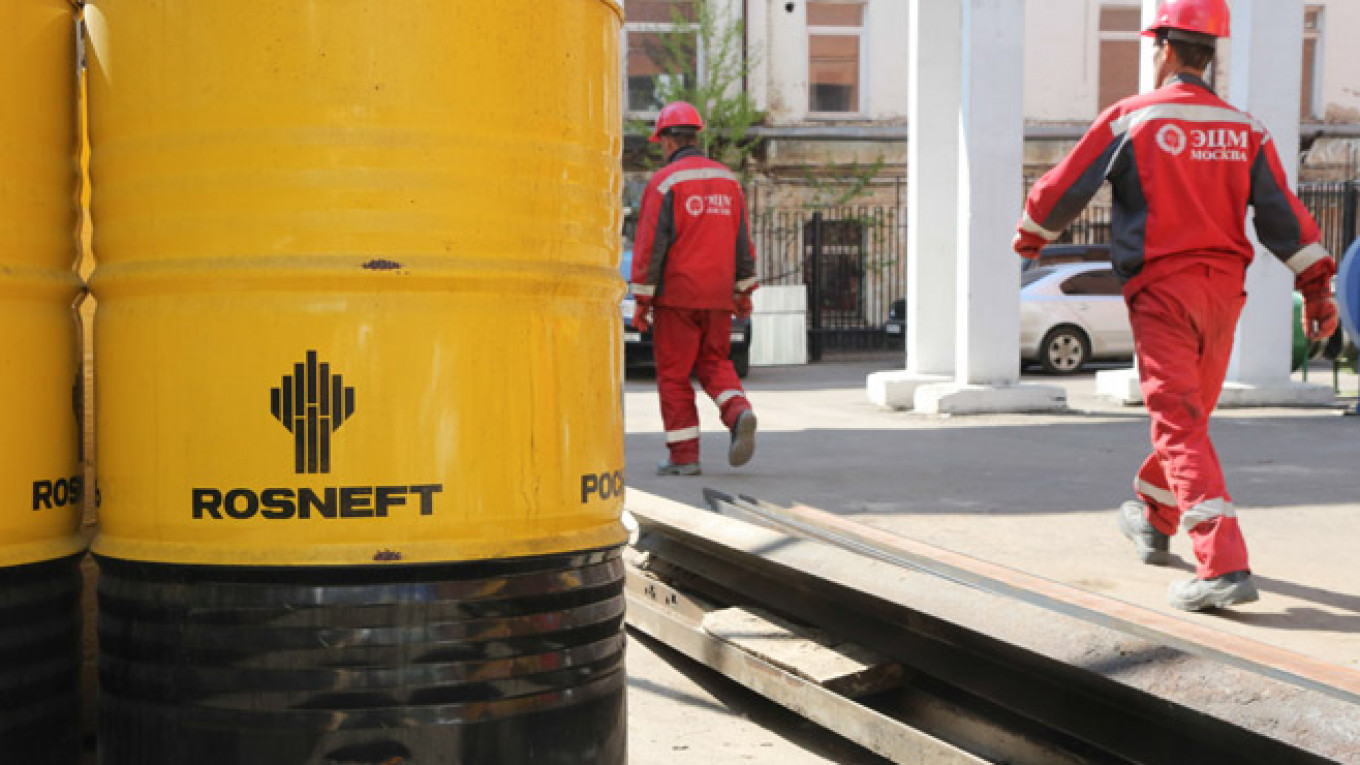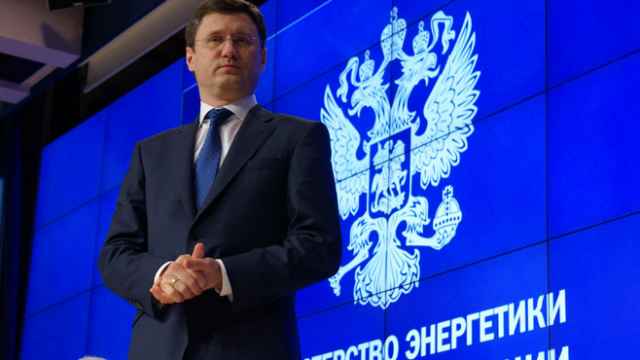The Russian Central Bank sees crude oil prices returning to above $100 per barrel in coming quarters and staying above that mark in 2016-2017, according to the bank's quarterly monetary policy document published Tuesday.
By supporting the ruble, a recovery in oil prices would help the bank reduce high inflation, providing context for its decision last week to hold interest rates despite inflation overshooting the bank's target.
However, the bank also expressed concerns that inflationary expectations among the population are deteriorating — a factor that is likely to prevent it easing monetary policy soon.
"The Bank of Russia expects that the price of oil for Urals blend will return in coming quarters to above $100 per barrel, taking under consideration the continuation of geopolitical risks in the Middle East and Ukraine," the Central Bank said in the document.
On Tuesday, Urals, Russia's main blend, traded at $95.22 per barrel, contributing to the ruble's weakening to fresh historic lows against the dollar.
The Central Bank expects the price to recover to about $102-$103 in 2016-2017.
On the downside, the bank said that expectations for inflation 12 months from now had "increased significantly" — implying that the bank still has work to do to convince the population that its anti-inflation rhetoric is serious.
In a monthly survey, 60 percent of people expected consumer prices to be rising at the current level in a year's time while more than 20 percent expected inflation to be higher, the bank said.
In early September annual inflation was 7.7 percent, overshooting most forecasts from earlier this year, mostly due to weakening of the ruble and introductions of a food imports ban by Moscow in response to Western sanctions.
The bank aims to reduce inflation to 4.5 percent in 2015 and 4 percent in 2016 — a goal which it says is consistent with the current stance of monetary policy.
Capital Outflows
The Central Bank said Russia is likely to see net capital outflows of $20 billion in the second half of the year and a total $90 billion in the whole of 2014, implying a moderation of the large outflows seen as the Ukraine crisis escalated earlier this year.
Lower capital outflows would also help support the ruble. The bank said there was a risk these outflows could pick up again if the external economic environment deteriorates, however, leading to a weaker ruble.
Under its base scenario the bank sees the current account surplus at about 2 percent of gross domestic product this year and 1 percent in 2015-2017.
It projected economic growth of 1 percent next year, rising to 1.8 to 2.0 percent in 2016 and 2.2 to 2.5 percent in 2017.
It said a sustained fall in the oil price was one of the basic risks to its base forecasts, while a prolongation of Western financial sanctions imposed over its role in the Ukraine crisis was another.
"In the event of a significant and sustained fall in oil prices there will probably be, on the one hand, a faster weakening of the ruble and, on the other hand, a significant slowing in the economic growth rate," it said.
"The reaction of the Bank of Russia in such a situation will be directed at preserving price stability and will be determined by the expected influence of the indicated factors on the rate of price increases."
A Message from The Moscow Times:
Dear readers,
We are facing unprecedented challenges. Russia's Prosecutor General's Office has designated The Moscow Times as an "undesirable" organization, criminalizing our work and putting our staff at risk of prosecution. This follows our earlier unjust labeling as a "foreign agent."
These actions are direct attempts to silence independent journalism in Russia. The authorities claim our work "discredits the decisions of the Russian leadership." We see things differently: we strive to provide accurate, unbiased reporting on Russia.
We, the journalists of The Moscow Times, refuse to be silenced. But to continue our work, we need your help.
Your support, no matter how small, makes a world of difference. If you can, please support us monthly starting from just $2. It's quick to set up, and every contribution makes a significant impact.
By supporting The Moscow Times, you're defending open, independent journalism in the face of repression. Thank you for standing with us.
Remind me later.






